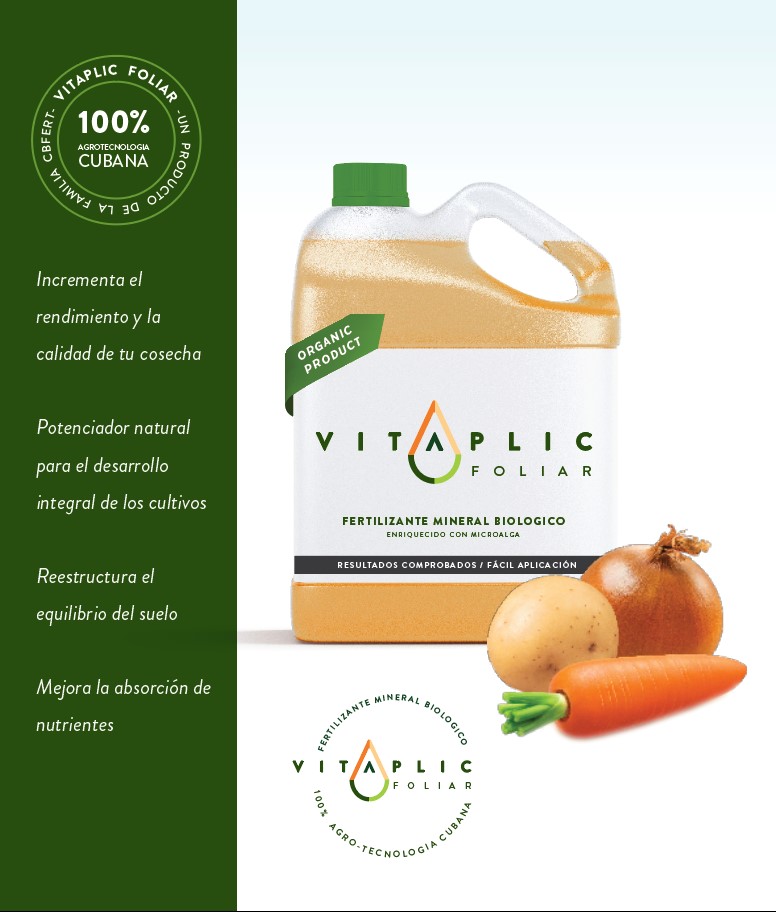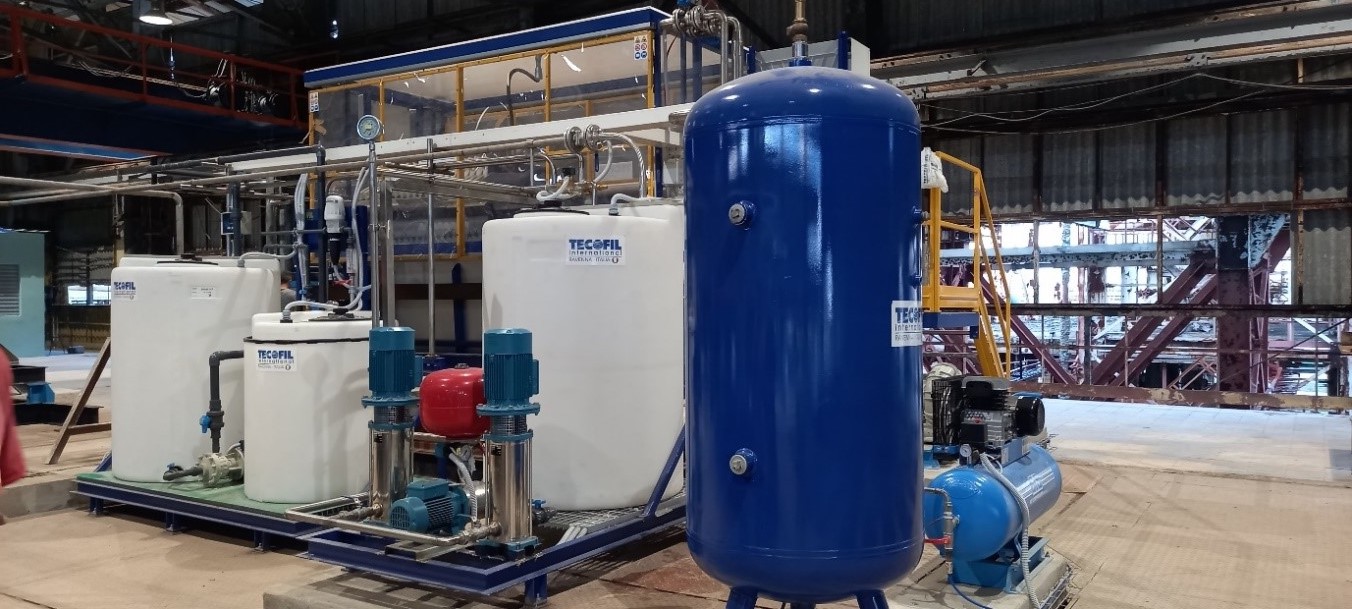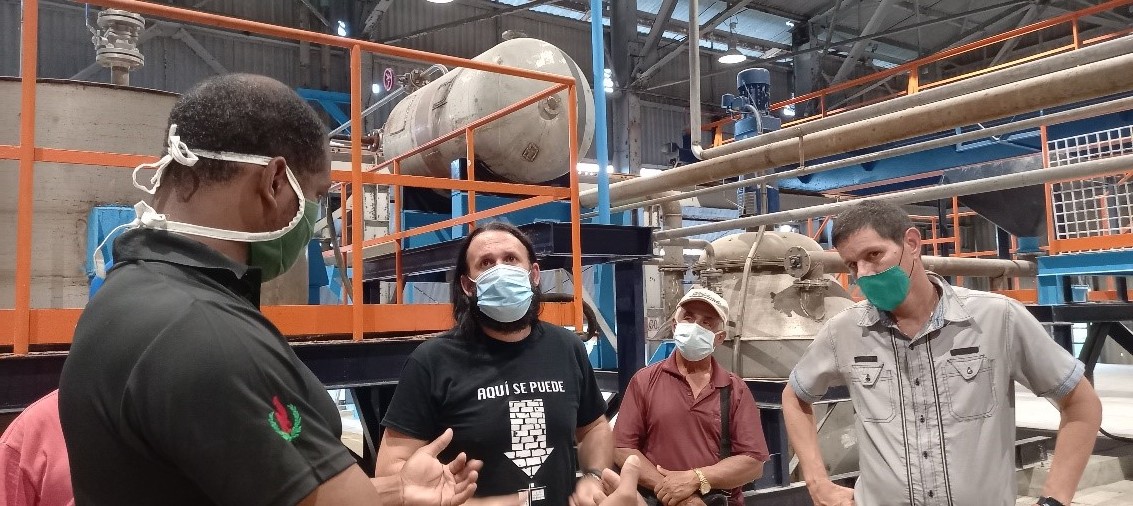 Technological and Enterprise Upgrading Programme in Cuba
Enhancing industrial performance and competitiveness of local beneficiaries operating in the fertilizer and agriculture machinery sectors
Technological and Enterprise Upgrading Programme in Cuba
Enhancing industrial performance and competitiveness of local beneficiaries operating in the fertilizer and agriculture machinery sectors

Challenges
Cuba is endowed with abundant natural resources, including soil and water, as well as human capital. Yet, a significant constraint to agricultural productivity is low production capacity as a result of longstanding technological and infrastructural insufficiencies and limited access to fertilizers.
The country faces major challenges in overhauling the prevailing agricultural models. The country’s agricultural sector could benefit from capacity building, allowing them to adopt good practices in production, quality control and distribution. One important requirement to improve agricultural production in this context is availability and application of fertilizers.
Towards a Solution
From 2016-2022, the United Nations Industrial Development Organization (UNIDO) implemented the Technological and Enterprise Upgrading Project that focused on technological upgrading and modernization of Cuban enterprises operating in the agro-chemical and agricultural machinery production sub-sectors. Based on its long-standing cooperation with Cuba, the Russian Federation supported the UNIDO Country Programme for Cuba (2016-2020) by providing funding for this project.
The project intervention included a series of activities to fine-tune the production process of an innovative fertilizer that supplies nutrients that are directly absorbed and assimilated by plants. An innovative organic liquid fertilizer (CBFERT/Vitaplic foliar) was developed by a local agro-chemical institution, the Chemical Engineering and Research Centre (CIIQ). This fertilizer has been recognized as an agrochemical and scientific breakthrough for its technical relevance and efficiency in addressing the country’s key food security issues.
As an initial step, development of a sectoral strategy for technological and business upgrading of agrochemical products and agricultural machinery was finalized, paving the way to industrial modernization of pilot liquid fertilizer and agro-machinery production plants, including the establishment of modern production processes. This was followed by a roadmap for the development and implementation of liquid fertilizer production and application systems in Cuba. In this way, the project supported the entire agricultural value chain by targeting production in two fertilizer plants: the calcium nitrate production plant of the chemical company ‘Revolución de Octubre’ EMPREQUIM, located in Nuevitas, Camagüey; and the pilot plant for production of CBFERT/VITAPLIC Foliar ecological liquid fertilizer at the Chemical Engineering and Research Center (CIIQ) in Havana. The machinery and technologies procured as part of the project’s technological modernization efforts largely originated from developing countries.
To ensure the long-term sustainability of the project, training, on-the-job coaching and study tours for national counterpart representatives and project beneficiaries were conducted throughout the country. Participants received guidance and advisory services on a regular basis. Additionally, the project creating an international branding, marketing and value chain strategy for calcium nitrate and CBFERT/VITAPLIC Foliar fertilizers to facilitate exposure of this local innovation to the export market (primarily other developing economies in the Latin American and Caribbean region).
Tested over multiple staple crops, CBFERT application resulted in up to a 65 percent yield increase compared to international reference samples. Notably, liquid formulations are considered highly appropriate, allowing precise dose measurement and better access to plants. Acknowledging its quality and impressive effect on yields, the Ministry of Agriculture has requested to increase the production of the liquid fertilizer to meet the national demand and to support the import-substitution model adopted by the Cuban government. As a result, CBFERT/VITAPLIC Foliar production saw a twenty-fold increase in demand and production in 2021 with a potential of forty-fold increase is expected for 2022.
In addition to upgrading and modernizing technological enterprises in Cuba’s agriculture sector, the project helps the country achieve food self-sufficiency and import substitution. The project’s long-term goal is to satisfy 90 percent of the local demand for liquid fertilizers, thereby boosting the country’s agricultural productivity and competitiveness.
The project enhanced South-South and triangular cooperation, intel alia, through several “spill over” effects related to the development and implementation of liquid fertilizer production and application systems throughout Cuba with significant replication potential in other countries of the Latin America and Caribbean region that have similar development profiles.
The project introduced various good practices in effective industrial modernization in the agricultural sector that have a significant replication potential in other developing countries facing similar challenges. Based on the expert network established by the project in Cuba, negotiations have been initiated with Venezuelan partners – creating synergies with the UNIDO project Industrial Upgrading and Modernization Program for the Bolivarian Republic of Venezuela – regarding an R&D partnership with a focus on the area of innovative fertilizer production.
Contact Information
Countries involved
Supported by
Implementing Entities
Project Status
Project Period
URL of the practice
Primary SDG
Primary SDG Targets
Secondary SDGs
Secondary SDG Targets
Similar Solutions
| NAME OF SOLUTION | Countries | SDG | Project Status | |
|---|---|---|---|---|
Adaptation of 3PA to Urban and Displacement Settings Using South-South and Triangular Cooperation in World Food Programme Three-Pronged Approach capacity strengthening through cross-learning initiatives |
Cuba | 02 - Zero Hunger | Completed | View Details |
Addressing Racial and Ethnicity-based Discrimination and Strengthening the Protection of Rural Afro-descendants UNFPA supports data disaggregation as a tool to fight racism and ethnic discrimination |
Cuba | 01 - No Poverty 02 - Zero Hunger 03 - Good Health and Well-being 05 - Gender Equality 06 - Clean Water and Sanitation 11 - Sustainable Cities and Communities 16 - Peace and Justice Strong Institutions | Ongoing | View Details |
ADELANTE Triangular Cooperation European Union – Latin America and the Caribbean |
Cuba | 10 - Reduced Inequalities | Ongoing | View Details |
Adolescent Nutrition Programme to Address the Triple Burden of Malnutrition in Indonesia Nourishing today’s teens and tomorrow’s future in Indonesia |
Cuba | 02 - Zero Hunger 05 - Gender Equality | Completed | View Details |
Advancing Public Health Policies to Address Overweight and Obesity in Chile and the Caribbean Community Leveraging experiences from Chilean labelling and marketing legislation to improve children’s health in the Caribbean |
Cuba | 02 - Zero Hunger | Completed | View Details |


